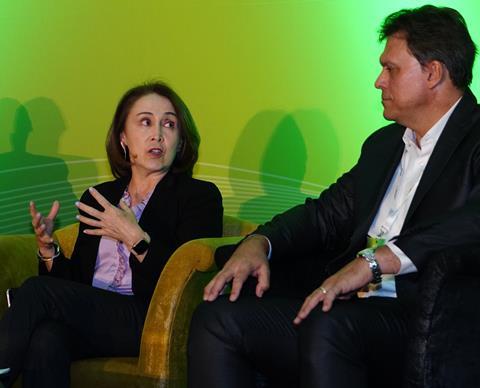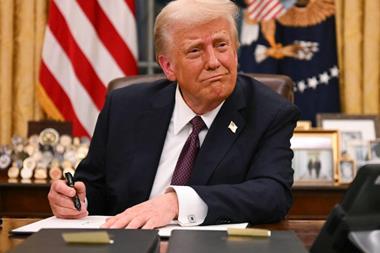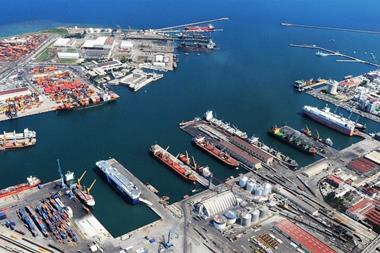Mexico and Canada have warned the US against a trade war following president-elect Donald Trump’s decision to impose a 25% tariff on all goods being imported into the country from Mexico and Canada.

At the end of November, Trump said he would sign an executive order to impose the tariffs after being inaugurated in January next year. As well as placing the 25% tariff on all goods coming from Mexico and Canada, he added that he would add an additional 10% to Chinese goods. If held up, the tariffs would break the US-Mexico-Canada Trade Agreement (USMCA).
Now, the Canadian and Mexican governments have said that the tariffs could provoke a trade war and have strongly warned against them. Canada’s prime minister Justin Trudeau said Canada’s relations with the US are “intense and effective”, while Mexico’s president Claudia Sheinbaum has said that Mexico would retaliate with its own tariffs.
Trump’s proposed tariffs would be a huge threat to the North American automotive supply chain – something which Mike Wall, executive director of automotive analysis at S&P previously told Automotive Logistics.
Now, as the tension across North America’s governments ramps up, Claudia Ávila Connelly, international trade, nearshoring & economic development expert tells Automotive Logistics that Mexico’s private sector is organising in light of the “worrying” tariffs. Connelly previously led the Customs Attention and International Affairs department at the National Customs Agency of Mexico, and served as an advisor to the Secretary of Finance of Mexico where she coordinated ‘Plan Mexico’, a key initiative between Mexico and the US to strengthen regional supply chains following Covid. She also promoted exports and investments through the North American Free Trade agreement (NAFTA) as Deputy Commercial Counselor of Mexico in Sweden and Canada.
“I think the message we are sending as a country is that we are getting ready. The worst-case scenario is if Trump really complies to his declarations of unilaterally imposing these new tariffs, and our president responds with new duties against US exports into Mexico,” she said. “That would be like a trade war between both countries, which would be terrible not only for the North American region but also for the world.”
Connelly added: “The bottom line here which is worrying me is that we may enter into a new era, from free trade to protectionism. That would be very dangerous for the world.”
She said that together, Mexico and Canada could enter into trilateral tribunals so that any trade disputes can be evaluated to be as transparent and fair as possible. These trilateral tribunals were first introduced with NAFTA and continued through the USMCA.
“Even though the USMCA revision is expected to be in 2026, the Mexican government and the Mexican private sector is already organising because we are worried about what will happen,” Connelly said.
She explained how these trilateral tribunals might work. In the past, when there was the NAFTA negotiation and the creation of the USMCA, Mexico organised a ‘side room’, which is comparable to a think tank and made up of experts from the private sector and experts who advise the Mexican government representatives in the formal negotiation room. “So if they were in any doubt about specific technical issues, they would be advised from the side room, from the private sector and experts, about what to say,” she said.
“Now the private sector is already organising, even though we have two years ahead [before the USMCA is reviewed]. They’re organising into different working groups, depending on the sectors and the issues being discussed,” she added. “The Mexican government has already organised the government group with different ministries that will be involved, including customs.”





































No comments yet